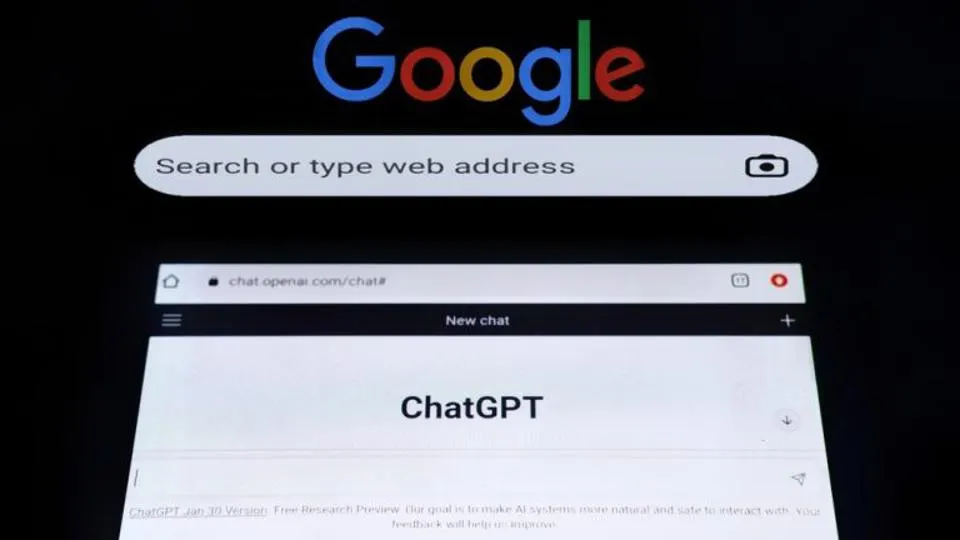Digital marketers and SEO professionals constantly seek innovative tools to enhance client results. The advent of AI technology has introduced a wide range of solutions that can boost efficiency and effectiveness in providing services. One such tool is ChatGPT, an advanced language model built on the GPT-3.5 (and GPT-4) architecture.
ChatGPT enables conversational query responses, making it invaluable for delivering valuable information to users. While some professionals perceive ChatGPT as a threat to their livelihood, it is important to recognize the complementary roles of ChatGPT and traditional search engines like Google.
This article explores when to utilize ChatGPT and when to leverage Google, highlighting the unique strengths and applications of each.
The Capabilities of ChatGPT:
ChatGPT possesses several advantages that make it a powerful tool for answering informational queries. It excels at providing accurate and concise responses to open-ended questions, catering to users seeking knowledge. ChatGPT can act as a research assistant, aggregating information from various sources, thus saving users time and effort.
Its integration with voice assistants like Siri and Alexa enhances its capabilities further, allowing for natural language interactions. Moreover, ChatGPT’s potential extends to smart home devices, enabling users to control their homes effortlessly.
Read Also: Will Digital Marketing Ever Rule the World?
The Strengths of Google for Transactional Queries:
While ChatGPT thrives in addressing informational queries, it falls short when it comes to transactional queries. Transactional queries involve taking action, such as making a purchase or booking a service. For such queries, traditional search engines like Google remain the optimal choice.
Google’s search results provide users with a list of websites where they can fulfill their desired actions, whether it be purchasing a product, booking a service, or making a reservation.
Distinguishing Informational and Transactional Queries:
Digital marketers must grasp the distinction between informational and transactional queries to optimize their strategies effectively. Informational queries focus on acquiring knowledge, while transactional queries emphasize taking action.
For informational queries, webmasters should create content that answers common questions and provides valuable information, ensuring it is well-written, informative, and optimized for relevant keywords.
In contrast, optimizing for transactional queries involves creating conversion-oriented landing pages with clear calls-to-action, user-friendly designs, and pertinent information about the offered product or service.
Read Also: Get to know India’s Top 10 Bloggers and their Earnings
Read Also: Who are the 15 Top Lifestyle Bloggers in India?
Leveraging ChatGPT for Websites and Chatbots:
As AI technology evolves, integrating ChatGPT into websites becomes increasingly viable. This integration enhances the browsing experience by allowing users to interact with websites using natural language. It opens doors for personalized customer service, automated support, and improved user engagement.
Chatbots, powered by ChatGPT, prove valuable in addressing customer queries, providing support, and facilitating transactions. With ChatGPT, chatbots can offer accurate and personalized responses, making them valuable business tools.
Webmasters and Crediting in ChatGPT:
Webmasters may not receive direct attribution in ChatGPT, making it unlikely to drive significant visitor traffic to websites. Therefore, optimizing content solely for ChatGPT might not generate substantial revenue.
Nevertheless, webmasters should still optimize content by focusing on high-quality content creation, conveying expertise, experience, authority, and trust (E-A-T). By prioritizing content that delivers value to users, websites can effectively cater to ChatGPT and other AI technologies.
Read Also: How to Become the Best Social Media Marketing Manager
Read Also: How to do Digital Marketing after 12th?
Enhancing Conversions through ChatGPT Integration:
Integrating ChatGPT into websites provides opportunities to improve conversions and sales. By understanding users’ interests and preferences, businesses can create targeted marketing campaigns that resonate with their audience, leading to higher engagement and conversion rates.
ChatGPT also facilitates real-time customer support, allowing businesses to provide instant responses, reduce wait times, and enhance customer satisfaction. Moreover, ChatGPT integration enables businesses to gather valuable customer feedback, identify common issues, and make improvements accordingly.
The Future of ChatGPT and User Experiences:
As ChatGPT continues to evolve, it holds immense potential to revolutionize human interactions with technology. Future iterations of language models are expected to better understand and respond to nuanced, natural language queries.
This advancement will present new business opportunities, allowing for personalized and engaging customer experiences.
Read More: Average Income of a YouTuber in India with 100k Subscribers
Conclusion:
In conclusion, ChatGPT serves as a powerful tool for delivering valuable information through conversational queries, while traditional search engines like Google excel in handling transactional queries.
Digital marketers and SEO professionals should understand the strengths and applications of both ChatGPT and Google to optimize their websites effectively.
By leveraging ChatGPT for enhanced customer engagement, real-time support, and personalized marketing, businesses can stay at the forefront of technological advancements and deliver exceptional user experiences.
Read Also: Best Digital Marketing Courses in Delhi with Placement Assistance
Read Also: The scope of digital marketing in India and all over the world



